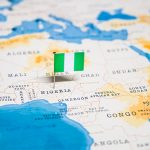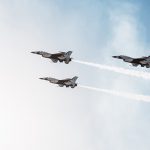With Iran facing geopolitical setbacks and economic decline, its next leader could secure survival by emulating Deng Xiaoping: trading confrontation for diplomacy, dropping revolutionary policies, and reengaging with the West.
Even if Israel and the US have only succeeded in damaging but not destroying Iran’s nuclear weapons program, the Islamic Republic has recently suffered several serious setbacks.
The Assad regime that Tehran had backed for decades fell in December 2024. Israel has gravely weakened Tehran’s Hamas and Hezbollah allies. The Houthis in Yemen cut a deal with the Trump administration whereby the Houthis stop attacking Western shipping in the Red Sea in return for the US no longer attacking Houthi positions in Yemen. Despite Iran having shipped armed drones and other weapons to Russia for use in its war against Ukraine, Moscow did nothing to protect Iran from Israeli and US attacks.
In the meantime, Iran’s economy is weak and its population is restive.
Iran’s Current Government Is in Trouble
With Iran’s beleaguered Supreme Leader, Ali Khamenei, now aged 86, he cannot remain in charge for too much longer. So long as he is in charge, Khamenei is not likely to change course. However, his successor can have a choice. On the one hand, he could continue the Islamic Republic’s present policy of calling for Israel’s destruction, opposing the US, supporting the anti-Western “Axis of Resistance” (Hamas, Hezbollah, Houthis), backing Russia, and working to acquire nuclear weapons.
Or he could pursue a course of action that other revolutionary regimes have sought as they mature. In his book Revolution and War, international relations theorist Stephen M. Walt observed that revolution in one country often leads to war or tensions between it and others. However, mutual acceptance can occur even after many years of stress and conflict if the revolutionary state ceases to try to export revolution and status quo powers cease seeking the revolutionary regime’s downfall.
One reason why revolutionary regimes stop trying to export revolution is that these attempts often fail (or worse, succeed but result in the rise of a revolutionary competitor). As noted already, Tehran’s years of support for the Axis of Resistance have been a waste of resources and have not achieved the aim of weakening Israel, much less the US But Iran’s support for these ineffective groups, as well as calls for Israel’s destruction, has given Israel strong incentive to launch attacks against Iran’s nuclear program, either alone or with the US, that have been all too effective from Tehran’s viewpoint. Continuing this course of action is unlikely to yield the same results.
But what alternative policy could any new leader of the Islamic Republic pursue? He is hardly likely to sign an Abraham Accord with Israel like the UAE, Bahrain, Morocco, and Sudan have (and Saudi Arabia has discussed but not done).
Why Iran Needs Its Own Deng Xiaoping
What a new leader of the Islamic Republic could do, though, is pursue a foreign policy like Deng Xiaoping in China did: focus on improving relations with Western governments to get economic sanctions removed and secure his country’s economic development through trade with and investment. This would also mean ending policies that inhibit this goal, such as support for the Axis of Resistance as well as attempts to acquire a nuclear weapons capability.
Some argue that no leader of the Islamic Republic would dare stop calling for Israel’s destruction, supporting the Axis of Resistance, or seeking a nuclear weapons capability for fear of being overthrown by Iranian hardliners. But there are many, not just within the Iranian population but within the Islamic Republic’s ruling circles, who may well be willing to abandon Tehran’s unsuccessful revolutionary foreign policy in exchange for remaining in power domestically, especially if sanctions relief allowed them to prosper.
Further, there is a case to be made that if Israel and the US are going to employ military means to prevent Iran from acquiring nuclear weapons anyway, then Iran is better off cooperating with the US and the International Atomic Energy Agency on reassuring measures that would result in the US not participating or approving additional Israeli attacks on Iran.
Furthermore, a leader of the Islamic Republic willing to receive Trump in Tehran, much like Mao received Nixon in Beijing, could lead to Trump acting to restrain hostile Israeli action against Iran and remove sanctions against Tehran (much like Trump has done with the new government in Syria).
Adopting such a policy would also enable Iran to do what Turkey, Saudi Arabia, the UAE, and other Middle Eastern countries, including Israel, are already able to do: cooperate with both the United States on the one hand and Russia and China on the other, and thus benefit from ties to all three. The lack of cooperation between the US and Iran now means that Russia and China do not have to compete with the US for Iran’s favor. Iran might gain more from a Russia and China that need to compete with the US for influence in Tehran if an Iranian-American detente were achieved.
In short, the next leader of the Islamic Republic would have a better chance of staying in power and building Iran’s economy by emulating Deng’s policy of engaging with the West, rather than supporting revolutionaries, and avoiding conflict. Just as Deng’s doing so drew US attention away from China, the equivalent of an Ayatollah Deng’s doing so could draw America’s attention away from Iran.
About the Author: Mark N. Katz
Mark N. Katz is a professor emeritus of government and politics at George Mason University Schar School of Policy and Government and a nonresident senior fellow at the Atlantic Council. He writes mainly on Russian foreign and security policy, especially toward the Middle East.
Image Credit: Shutterstock/Victor Jiang.


















